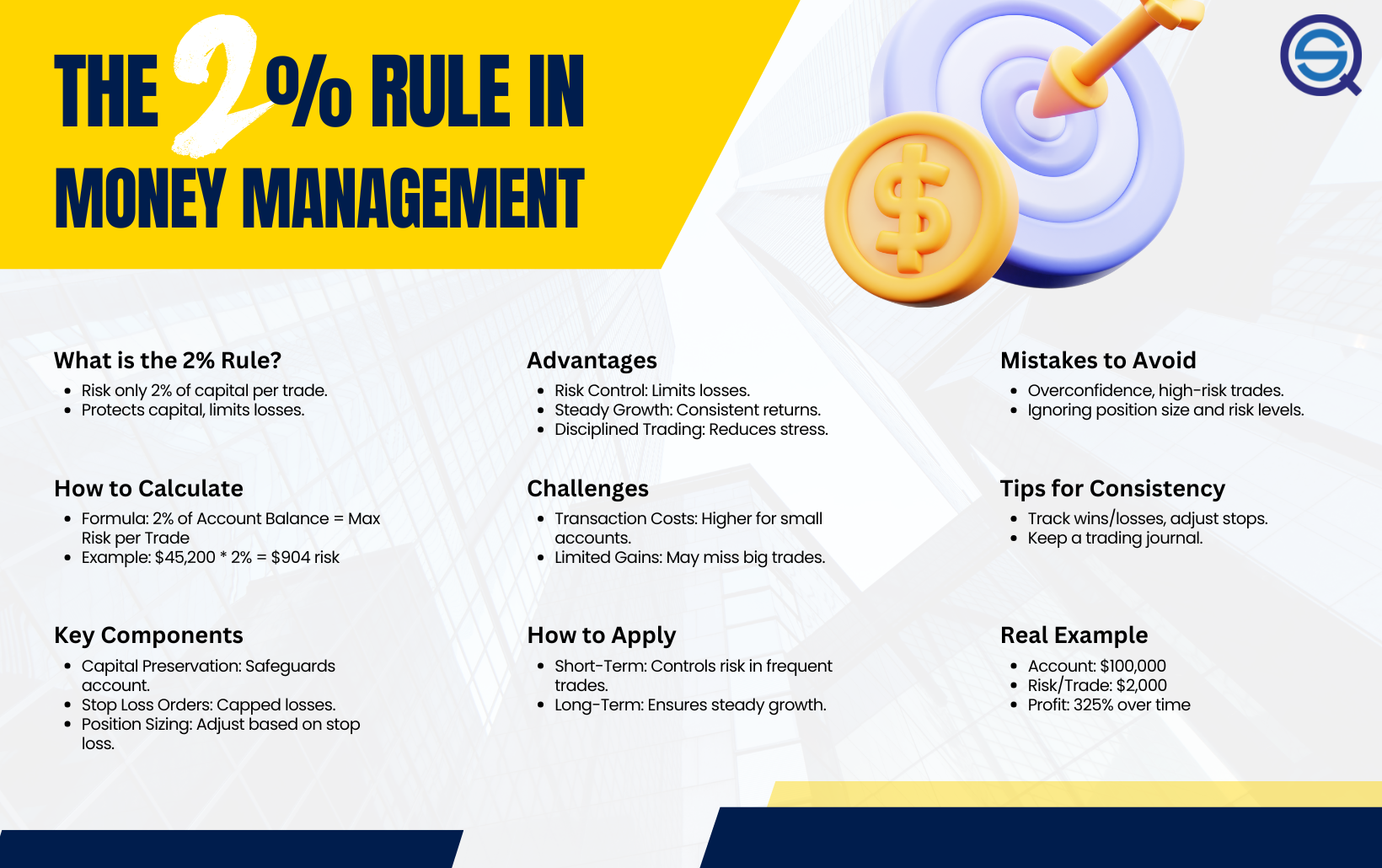Did you know that day traders often have a higher chance of getting lost in the market than a squirrel in a maze? In the fast-paced world of day trading, mistakes can be costly and even catastrophic. This article dives deep into the biggest risks associated with day trading errors, highlighting how poor risk management, overtrading, and emotional decisions can lead to significant financial losses. We’ll discuss the dangers of ignoring stop-loss orders and the impact of high leverage, as well as the critical importance of having a solid trading plan and conducting thorough market analysis. With insights from DayTradingBusiness, you'll learn how to avoid common pitfalls and enhance your trading strategy for better outcomes.
What are the main risks of making mistakes in day trading?
The biggest risks of day trading mistakes include significant financial losses, increased debt, and emotional stress. Errors like overtrading or poor timing can wipe out your capital quickly. Mistakes in risk management may lead to margin calls or forced liquidation. Consistent errors damage your confidence and can cause long-term financial instability.
How can poor risk management impact day trading success?
Poor risk management can wipe out your trading capital quickly, leading to huge losses. It causes emotional trading, making you chase losses or hold onto bad trades longer. Without proper stop-losses and position sizing, small mistakes snowball into big setbacks. This undermines your confidence and can force you to quit. Ultimately, neglecting risk management makes consistent profits impossible and increases the chance of ruin.
What common day trading errors lead to significant financial losses?
Common day trading mistakes that cause big losses include overtrading, chasing quick profits, ignoring risk management, and failing to set stop-loss orders. Trading without a solid plan or emotional impulsiveness also leads to costly errors. Relying on unreliable signals or neglecting market trends can wipe out accounts fast. Not managing leverage properly amplifies losses. Lastly, poor record-keeping prevents learning from mistakes, increasing future risk.
How does overtrading increase the risks in day trading?
Overtrading boosts risks in day trading by amplifying transaction costs, which eat into profits. It leads to emotional exhaustion, causing impulsive decisions and bigger losses. Overtrading also increases exposure to market volatility, raising the chance of significant swings against your positions. It can cause traders to ignore proper risk management, making it easier to blow out your account quickly.
What are the dangers of ignoring stop-loss orders?

Ignoring stop-loss orders exposes you to huge losses if the market moves against you. Without them, small dips can turn into catastrophic financial hits, wiping out your account quickly. It leaves your trades vulnerable to emotional decisions, causing you to hold onto losing positions longer. This can turn a minor mistake into a major financial disaster, especially in volatile markets.
How does emotional trading heighten the risk of mistakes?
Emotional trading clouds judgment, leading traders to make impulsive decisions based on fear or greed instead of logic. This rush of feelings can cause abandoning plans, overtrading, or holding onto losing positions too long. When emotions take over, mistakes multiply, increasing the risk of significant losses and damaging overall trading performance.
What impact does high leverage have on day trading risks?
High leverage amplifies day trading risks by increasing potential losses beyond your initial investment. It can cause rapid account depletion if trades go against you. Using high leverage makes it easier to wipe out your account quickly, especially with volatile market swings.
How can lack of a trading plan cause costly mistakes?
Lack of a trading plan leads to impulsive decisions, overtrading, and poor risk management. Without clear rules, traders react emotionally to market swings, causing expensive errors. It increases the chance of holding losing positions too long or exiting winners too early. This chaos can wipe out profits and blow accounts fast.
What are the risks of trading without proper market analysis?
Trading without proper market analysis risks significant losses, unpredictable price swings, and poor decision-making. It can lead to overtrading, emotional reactions, and missing key entry or exit points. Without analysis, you’re more likely to fall for false signals, chase trends, or hold losing positions too long. This increases the chance of rapid account depletion and financial instability.
How does poor timing affect day trading outcomes?

Poor timing in day trading causes missed opportunities or entering trades too late, leading to bigger losses or smaller gains. It can trigger panic selling or premature exits, amplifying risk. Bad timing increases the chance of executing trades at unfavorable prices, reducing profitability. Overall, it undermines strategy, making losses more likely and profits harder to lock in.
Learn about How Does Insider Trading Affect Day Traders?
What are the consequences of ignoring risk-reward ratios?
Ignoring risk-reward ratios can lead to larger losses, poor trade decisions, and reduced profitability. Without proper risk management, a few bad trades can wipe out gains and even account balance. It increases emotional trading, causing overtrading or holding onto losing positions. Ultimately, it jeopardizes long-term success in day trading.
How can overconfidence lead to bigger losses in day trading?
Overconfidence makes traders take bigger risks, ignore warning signs, and hold onto losing positions longer. It leads to overtrading and ignoring proper risk management, increasing the chance of large losses. Confidence without proper analysis causes impulsive decisions, amplifying losses in volatile markets.
Learn about How can poor risk management lead to losses in day trading?
What are the risks of trading during volatile market conditions?

Trading during volatile market conditions increases the risk of large, unpredictable losses, rapid price swings can trigger impulsive decisions, and stop-loss orders may not execute at expected prices, leading to bigger losses. It also heightens the chance of overtrading, emotional reactions, and misjudging market trends, which can compound mistakes.
Learn about What are the risks of trading during volatile market conditions?
How does inadequate knowledge of trading strategies increase mistakes?
Lacking knowledge of trading strategies leads to poor decision-making, impulsive trades, and misjudging market signals. Without understanding strategies, traders miss warning signs and fail to set proper stop-losses, increasing the chance of costly errors. This ignorance causes overtrading, revenge trading, and poor risk management, all of which amplify financial losses.
What are the long-term risks of repeated day trading errors?
Repeated day trading errors can lead to significant long-term financial losses, erode your trading capital, and damage your confidence. They increase the risk of accumulating bad habits, making it harder to recover from losing streaks. Over time, these mistakes can cause emotional burnout and impulsive decisions, further compounding your financial risks.
Conclusion about What are the biggest risks associated with day trading mistakes?
In summary, the myriad risks associated with day trading mistakes can significantly undermine your financial success. Poor risk management, emotional trading, and lack of a structured plan can lead to costly errors. Ignoring critical strategies like stop-loss orders and risk-reward ratios further exacerbates these challenges. To navigate the complexities of day trading effectively, it's essential to enhance your knowledge and stay disciplined. Empower your trading journey with insights and support from DayTradingBusiness to minimize mistakes and maximize your potential.
Learn about Risks Associated with Day Trading Arbitrage
Sources:
- Interagency Supervisory Guidance on Counterparty Credit Risk ...
- Gambling and online trading: emerging risks of real-time stock and ...
- A Financial System Tested by Higher Inflation and Interest Rates
- Understanding the High Failure Rate in Trading: Why 99% of ...
- Women and Trading: Currencies, Commodities, and Crypto | CFA ...
- The impact of wind power and electricity demand on the relevance ...